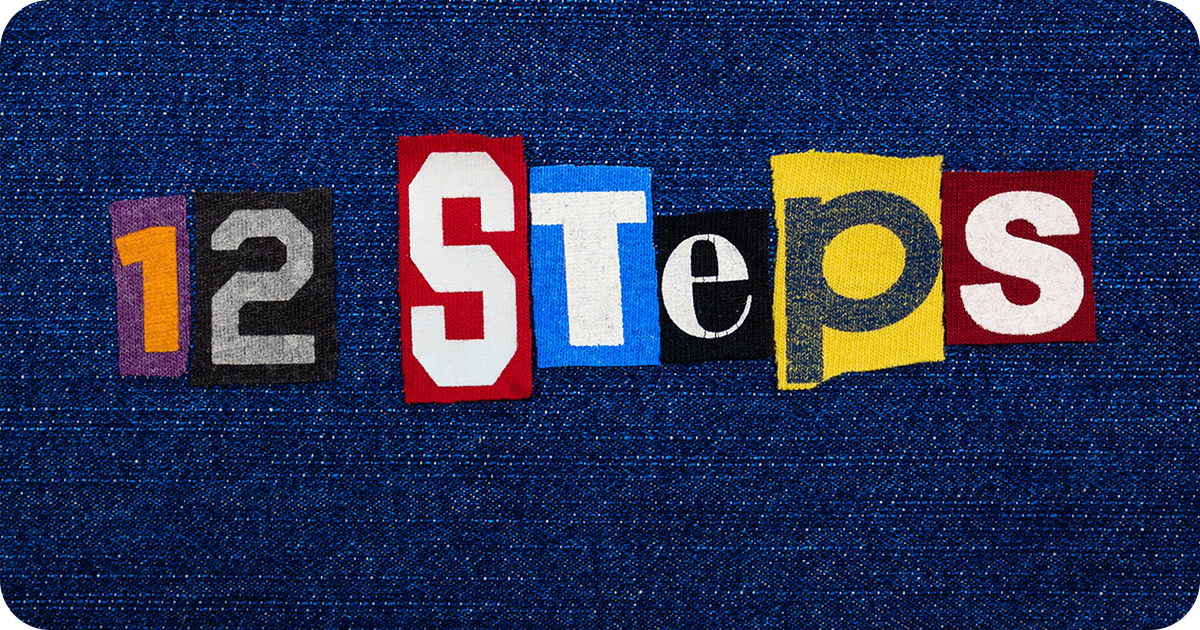Finding treatment for substance abuse can be challenging. Once a person with a dependency finds they need help, guilt and shame often follow. Social stigma and pressure surrounding substance abuse make seeking help feel weak or even wrong and can deter those dealing with active addiction.Zwick, J., Appleseth, H. & Arndt, S. Stigma: how it affects substance use disorder patients. Subst Abuse Treat Prev Policy 15, 50 (2020). https://doi.org/10.1186/s13011-020-00288-0 However, research is making it more and more clear that drug and alcohol dependency isn’t a clear-cut fault-based condition. Many professionals now see dependency Foddy, B., & Savulescu, J. (2010). Relating addiction to disease, disability, autonomy, and the good life. Philosophy, Psychiatry, & Psychology, 17(1), 35-42. as a disease rather than a personality flaw or an issue with willpower.
For those who struggle with dependency, finding a treatment option that avoids the blame and shame game can be a critical moment in beginning the road to recovery. One of the more effective and accessible options for addiction treatment is the use of a 12 step program.
What Is the Basic Concept of a 12 Step Program?
A 12 step program is a guide for recovery that utilizes mental, physical, and behavioral changes as a means of facilitating drug or alcohol dependency recovery. By using different methods of treatment, ranging from conversations with coaches and therapists to writing letters and apologies to others, a 12 step recovery program establishes a set of values and ideals in individuals with addiction issues that encourage them to reach recovery. Hillhouse, M. P., & Fiorentine, R. (2001). 12-step program participation and effectiveness: Do gender and ethnic differences exist? Journal of Drug Issues, 31(3), 767-780.
Although traditionally geared towards alcoholism through the acceptance of God, 12 step programs can be completely secular and reach those experiencing many types of addiction. The use of spirituality and a connection to faith in terms of one’s journey on the path of recovery has traditionally been a key part of the 12 step process. However, more recent iterations of the program have embraced a more secular, inward-reflecting treatment method for addiction issues.
What Does a 12 Step Program Entail?

Much like any mindfulness program, a 12 step recovery program is aimed at creating a positive system of treating addiction based on individual reflection and self-recognition. Organizations like Narcotics Anonymous or Alcoholics Anonymous are closely tied with the concept of the 12 step program, utilizing the steps towards recovery in their treatment models. However, you do not have to be involved with either Narcotics Anonymous or Alcoholics Anonymous to embark on a 12 step program.
Traditionally, a 12 step program is reliant on changing the emotional and mental behaviors surrounding addiction. Ideally, this will lead to behavioral changes and eventually addiction management and recovery.
What Are the 12 Steps?
The goal of each step is to instill the mindset of recovery in those facing active addiction. Each step involves utilizing different incentivized actions to promote and ensure recovery.
The twelve steps of recovery traditionally include:
Step 1: Honesty
Coming to terms with an addiction is the first step towards recovery, but it is also the hardest step of the process. Whether it be guilt, humiliation, or general uneasiness with accepting the results of admitting to having a substance addiction, admitting to a dependency is not an easy process. This is especially true after struggling with addiction and substance abuse issues for an extended period of time, but it is a crucial part of beginning a 12 step program.
One of the biggest parts of the honesty stage includes admitting that your addiction is a chronic illness. Changing your mindset about the process of recognizing the illness is vital to helping you change your overall mindset about addiction. No one chooses to develop a substance reliance, just like no one chooses to develop a chronic illness. Being able to address developing an addiction as something out of your control is necessary for recovery.
Step 2: Hope

For any long-term goal, having faith in your ability to achieve that goal is a key part of reaching success—and the same goes for addiction recovery. Instilling hope into your approach to addressing addiction helps to establish a goal for your treatment process. Whether it be belief in a higher power or any other spiritual system, having hope that your addiction can be mitigated is essential to treating any addiction issue.
Step 3: Faith
Step three is all about embracing the higher power you’ve identified as a part of your life and treatment plan. As mentioned, the idea of a higher power in addiction treatment has transformed from exclusively referring to God to referring to more broad concepts of spirituality and spiritual beings. By allowing this greater force to actively help you replace your reliance on a substance, you are establishing a commitment to inward reflection. This step is often used to explain and establish a prayer or meditation routine that can help facilitate and uplift you during your process of recovery.
Step 4: Courage

Seeking help for an addiction is extremely courageous in and of itself. Applying this same notion to your active journey towards recovery is essential as well. Combining the third step of faith with the fourth, courage, helps instill the fight needed to combat addiction and is a key component to maintaining a healthy trajectory toward recovery. Beginning the process of discovering the wrongs that occurred during your period of active addiction is part of owning your past, helping you transition to the next step of the program.
Step 5: Integrity
The fifth step of the process is building up the integrity to begin the steps necessary to address any wrongdoings you may have committed during your active addiction. This process involves the recognition of harmful behavior, as well as addressing these issues and how they affected others. Doing so can help you come to terms with your guilt over the chaos these actions caused. Sometimes, guilt can be the most painful aspect of recovery, especially after realizing that your actions are the root cause of the pain felt by others. Learning how to handle that guilt in a healthy way is very important to the recovery process.
The process of guilt recognition and processing that guilt requires a great deal of emotional integrity.
[fn]O’Connor, L. E., Berry, J. W., Inaba, D., Weiss, J., & Morrison, A. (1994). Shame, guilt, and depression in men and women in recovery from addiction. Journal of substance abuse treatment, 11(6), 503-510.[/fn]
Dealing with this process in a healthy way using your personal coping mechanisms as well as your chosen higher power is reliant on a strong internal processing system. Being able to actualize and speak about these issues confidently, without shame, is key to accepting your past and moving forward in the recovery process.
Step 6: Willingness
Having the willingness and determination to change your behavior is essential for the embrace of a 12 step program. Creating a system of willingness and willpower recognition helps you not only feel good about your progress, but also aims at instilling a mindset that is accepting of occasional pitfalls in your progress. Progression towards sobriety is not linear, so occasional relapses are to be expected. Willingness to continue to use your personal set of coping mechanisms and your spiritual guide can help overcome these brief lapses in recovery. Overall, willingness can help you stay on track toward lasting recovery.
Step 7: Humility
Throughout the process so far, you will have participated in the inward reflection and mental reconciliation needed to formulate which parts of your active addiction have been a struggle for you and those around you. Accepting those humbly is crucial to achieve forward progress.
[fn]Stephen G. Post, Maria E. Pagano, Matthew T. Lee & Byron R. Johnson (2016) Humility and 12-Step Recovery: A Prolegomenon for the Empirical Investigation of a Cardinal Virtue in Alcoholics Anonymous, Alcoholism treatment quarterly, 34:3, 262-273. https://doi.org/10.1080/07347324.2016.1182817[/fn]
The reliance on faith, in terms of seeking a higher power or concept as a guideline for behavior, can be used as a way to address these issues. Your faith can help you ensure that each action taken by you during active addiction is adequately addressed, both physically and spiritually.
Step 8: Reconciliation
Step eight of the 12 step rehabilitation process is the process of reconciling with any problems or issues that might have been caused by your active addiction. Through planning letters or meeting with friends and loved ones, facing the consequences of your actions by addressing them with others is important to progress further on your journey towards recovery.
Almost like practicing for a test, speech, or interview, outlining who you need to speak to and what you would like to say to them is key to helping you prepare for the next step of the process, which includes reconciliation and speaking to the people you’ve affected. These necessary olive branches are all part of creating a less hostile, more positive environment for dealing with your addiction, both as an individual and as a part of a community.
Step 9: Justice
The ninth step towards addiction recovery is actively seeking forgiveness for one’s actions that occurred during active addiction. The work done throughout the reconciliation phase, where you collect and catalog the instances where your addiction had an impact on another individual’s life, can be applied through real-life interactions and meetings with the people you care about. Not only is expressing your grievances a form of catharsis, being able to talk directly to the people you’ve affected helps alleviate the guilt you experienced due to your substance use.
This process is one of the trickier steps towards recovery—sometimes, reconciliation is not possible. Some people, based on their interactions with you during your phase of active addiction, might be uncomfortable or uninterested in making amends. Recognizing this and not internalizing it as a barrier to your recovery is important. Recognize that their refusal—and your ability to avoid continued contact after they’ve expressed their discomfort—may be part of the recovery process for you. Your work is to reconcile, but you can’t control another’s response to that reconciliation.
Step 10: Perseverance
Being able to stand up in the face of adversity in any aspect of your life is a test of your own personal perseverance. With addiction recovery, this step is crucial to remaining sober in the years to come. After a period of inward reflection and holding yourself accountable for your past actions, you can begin recognizing and avoiding triggers that could make you relapse and stray from your path of rehabilitation. By using your personal recognition of your triggers as well as your personal spiritual guidelines, perseverance through tough times can be a test of faith and strength.
Step 11: Spirituality

Spirituality is the convergence of your experiences and personal behavior as they pertain to your recognition of a higher power. Whether you prefer prayer and church services or meditation and mindfulness, relying on your personal spiritual coping mechanisms to keep you grounded during trying times in your journey is important during and after the 12 step recovery process. Incorporating a system of mindfulness and spirituality is beneficial for your life, regardless of whether you’re actively dealing with addiction. These mindfulness techniques can be beneficial in many areas of your day-to-day life.
Similar to how some people go to church to confess their sins and receive absolution, those in a 12 step program have the opportunity to embrace the complete journey of their healing as a cleansing force. Admitting your guilt, relapses, harmful actions, and staying humble all come together to back your spiritual guiding force. In this way, your spirituality can help you reach sobriety and maintain it for years after completing your 12 step program.
Step 12: Service
In the final stage of the 12 step program, you begin the process of helping those around you struggling with the same issues you dealt with. During this time, it is important to encourage them to follow in your footsteps and begin treatment through a similar 12 step program. By speaking from your lived experiences—as well as attesting to the validity and effectiveness of the program—your story can help inspire others to seek treatment. The most important aspect of seeking treatment is finding a support network that you can rely on. Having someone by your side that has experienced the same struggles that you have faced helps create a network of support that expands beyond yourself.
Becoming a sponsor essentially means becoming a resource for an individual on their personal track towards recovery through a 12 step program. In many instances, becoming someone’s sponsor can be a fulfilling and extremely helpful part of the service portion of recovery. Navigating something as taxing as addiction can be far easier with guidance from others who understand. Having someone that can coach you, especially when you know that they’ve been through the same issues, is a great asset to have throughout the recovery process.
Why Choose a 12 Step Program?

The simple reason to consider a 12 step program in your recovery journey is its effectiveness. Annis, H. (2002, May 28). Process and outcome changes with relapse prevention versus 12‐Step aftercare programs for substance abusers. Wiley Online Library. Retrieved February 26, 2022, from https://onlinelibrary.wiley.com/doi/abs/10.1046/j.1360-0443.2002.00101.x
Since 1938, the 12 step program for addiction (originally focused on alcohol addiction) has been used by recovering individuals throughout their addiction timelines and recovery journeys. While many treatment programs incorporate positive values with systems of behavioral changes, the original 12 step program system is centered around belief in a higher power that helps facilitate these changes. Still, in the end, change must also be driven by self-motivation. By creating a system that makes you rely on yourself through the influence of a spiritual system or self-guided meditation course, your treatment—and its success—become a reflection of your own personal behavior.
Where and When to Seek Help
Whether you choose to take on a religious journey or aim for a more secular approach, embarking on a 12 step program is extremely beneficial for your recovery journey. We provide you with the information and coaching necessary to start your recovery journey. To ask questions or request resources regarding 12 step programs, contact us or call anytime for more information.
References:

